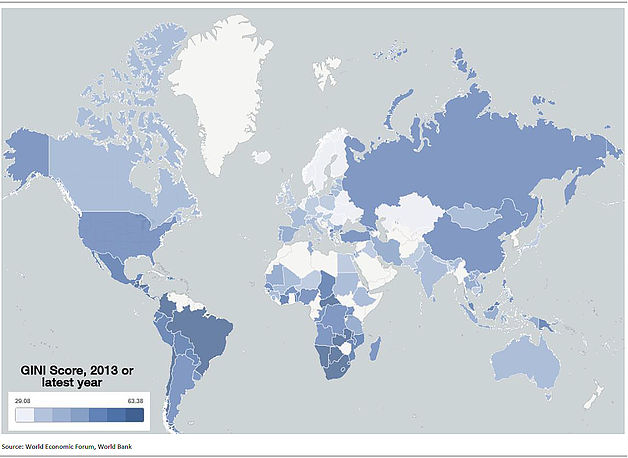Political scientists believe that the current level of income inequality is directly incompatible with democracy and the gap is only widening. By 1970 the wealthiest 10% of the population in all five countries had fallen to a range of 25% to 35% of total income. However, the trend since 1980 has completely reversed, moving back towards deepening inequality. Today in the U.S., the top 10% in terms of wealth take home almost half of the national income.

Future trends, particularly the rise of automation and robotics, are unlikely to reverse this trend.
- 20% of CEOs’ activities hold the potential to be automated using current technologies.
- $2 trillion in annual U.S. wages could be affected by automation, putting even highly compensated occupations on the chopping block.
- 1.7M robots are already in use around the world – largely in industrial settings.
Nationalism and dissatisfaction with “the system” are on the rise across the world and the evidence is in political backlashes, uprisings and movements whose outcomes are highly uncertain. The Brazilian trucker strike, the Arab Spring, protests in Iran and Brexit all have their roots in people’s unhappiness with the status quo and concern about the future. We believe countries facing the combination of youth unemployment, growing populations, and resource scarcity are the most vulnerable to prolonged unrest.
Escalating Uncertainties: Up close
The future will be determined by those who are willing to reinvest, adapt and turn future threats into opportunities.